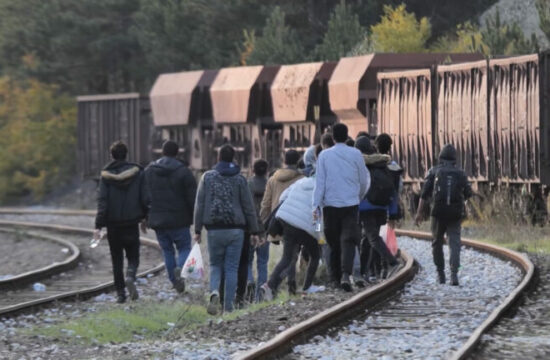
Construction of Sarajevo-Belgrade highway is not only important for Bosnia and Serbia but for the entire region, ministers of the two countries agreed at a meeting held in Belgrade on Friday.
Serbia's Construction, Traffic and Infrastructure Minister Zorana Mihajlovic and representatives of Turkish Tasyapi company signed a framework agreement on Friday which encompasses among other projects the project of Belgrade-Sarajevo highway construction. Mihajlovic explained that contracts on three infrastructural projects will come from this agreement.
“The first one is Novi Pazar-Tutin road rehabilitation. I believe within six months we're going to have workers on this road, the road that will cost us at least EUR 20 million, and the section is 22.5 kilometres long,” said the minister.

Another two projects are two routes of Belgrade-Sarajevo highway passing through Serbia, explained Mihajlovic adding that the cots of the first route were estimated to EUR 830 million and the second a little over EUR 200 million.
Mihajlovic assessed this as a very important day as the signed framework agreement means the final agreement might be signed soon.
According to her, it will take six to eight months to collect the necessary documents and the highway section in Serbia could be constructed by the end of the next or the beginning of the year 2020.
“This is a project that is important not only for Serbia, not only for Bosnia and Herzegovina but for the entire region. Serbia has a strategic interest to get connected with all countries surrounding it, which means that as a region we would be stable not only politically but also economically and infrastructurally, which certainly means a better life for the citizens in the region,” Mihajlovic said.
The minister expressed hope the bridge Bratunac-Ljubovija, which should connect the two countries, would be constructed soon after the Bosnia's election taking place this October.
Bosnia's Minister of Transport and Communications, Ismir Jusko, emphasized the importance of the highway construction and confirmed that no strategic document is likely to be signed before the election.
“…but I believe that the new composition of the Council of Ministers and the Presidency of Bosnia and Herzegovina will start the implementation of this project because Bosnia and Herzegovina's future depends on that,” Jusko said.
He assessed the project as a result of teamwork of the three countries and said he was convinced the construction works in Bosnia would start soon.
Tasyapi CEO Emrullah Turanli thanked Serbia for the trust and promised the project would be completed even before all deadlines. He also expressed hope the company's employees would get a chance to perform the works in Bosnia too.
During one of the Bosnia-Serbia-Turkey trilateral meetings, Turkey expressed readiness to financially support the highway construction, leaving it to Bosnia and Serbia to decide on the routes that would connect their two respective capital cities.
After Bosnia’s two semi-autonomous entities, the Republika Srpska (RS) and the Federation (FBiH), failed to agree on one of two possible options, Turkey said it would finance the construction of both routes, via the northern city of Tuzla and Visegrad in the east of the country.




